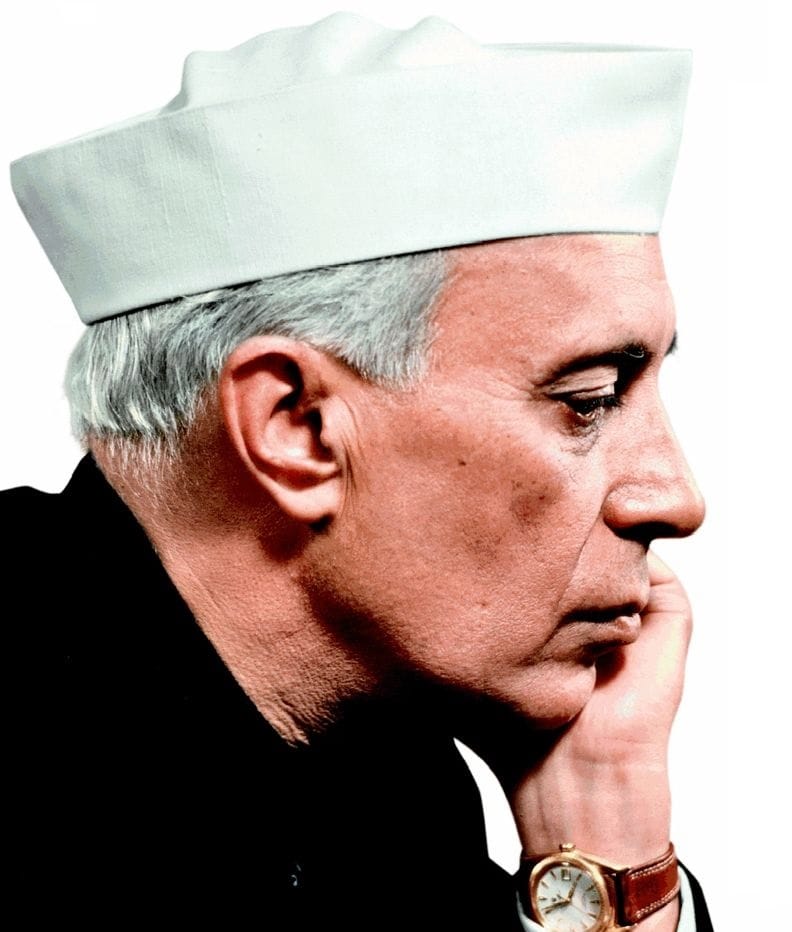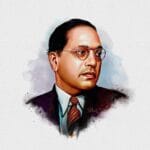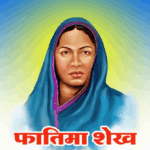Can one person really be a hero of India’s freedom struggle, every child’s beloved “Chacha Nehru”, and the visionary who laid the foundation of modern India — all at once?
Did you know that Nehru was much more than just India’s first Prime Minister?
In this in-depth post, we’ll peel back the layers of his life — from his birth to his final days. You’ll discover a complete picture of his political choices, deep-rooted philosophy, and lesser-known personal struggles — all of which didn’t just shape Nehru himself, but helped define the identity of an entire nation.
Jawaharlal Nehru wasn’t merely the first Prime Minister of India; he was a visionary leader who rebuilt a divided and struggling nation on the pillars of democracy, science, and secularism.
Early Life, Education, and the Roots of Nehru’s Ideology
Nehru’s Birth and Family Roots
Pandit Jawaharlal Nehru was born on November 14, 1889, in Allahabad (now Prayagraj), in the United Provinces of British India.
He came from a wealthy and influential Kashmiri Pandit family, but his upbringing was deeply influenced by Western culture and values.
His father, Motilal Nehru, was a renowned barrister and a prominent leader of the Indian National Congress. Motilal’s strong political presence and liberal outlook had a lasting influence on young Nehru’s thinking.
His mother, Swarup Rani Nehru, was gentle and deeply rooted in tradition. She played a vital role in keeping Nehru connected to Indian culture and spiritual heritage.
In Nehru’s early life, there existed a fascinating blend of Indian traditions and Western upbringing — a contrast that shaped him into a multifaceted and modern-minded individual.
How Western Learning Shaped Nehru’s Mind
Nehru received his formal education in Britain, which laid the foundation for his intellectual growth:
School and College: At the age of 15, he enrolled in the prestigious Harrow School in England. Later, he attended Trinity College, Cambridge University, where he studied Natural Sciences. However, his interests gradually expanded to history, politics, and economics, shaping the breadth of his thinking.
Law Studies: After graduating from Cambridge, Nehru pursued law at the Inner Temple in London, qualifying as a barrister.
When he returned to India in 1912, he began practicing at the Allahabad High Court, but his heart soon gravitated toward politics and nation-building.
During his years in London and Cambridge, Nehru observed global political and social movements firsthand. It was during this period that he developed a strong inclination toward socialism and international politics.
These ideological roots didn’t just make him a freedom fighter; they shaped him into a visionary leader who imagined India as a modern, scientific, and secular nation.
There are several interesting anecdotes and stories from Nehru’s life, education, and ideological roots that give us a glimpse into his personality and thought process:
oung Nehru and His Lavish Kindergarten Playroom
This childhood story shows just how royal and privileged Nehru’s upbringing was — an upbringing that, paradoxically, later influenced him toward socialism and a concern for the common people.
It’s an ironic yet profound truth that Nehru’s royal upbringing ultimately brought him closer to socialism and the common people. This transformation happened in three main ways:
How a Privileged Childhood Shaped Nehru’s Socialist Vision
Separation from Privilege and a Growing Conscience
Nehru’s childhood at Anand Bhavan was no less than that of a European prince. He had access to expensive toys, private tutors, and even the luxury of traveling abroad — comforts few in India could imagine at the time.
- Sense of Guilt: As Nehru grew older and witnessed India’s deep poverty, ignorance, and social inequality, he became acutely aware of his own life of privilege. In his autobiography, he often mentions feeling a sharp contradiction between his comfortable lifestyle and the misery of his fellow countrymen.
- Loneliness: His royal and sheltered upbringing had also isolated him from the everyday life of ordinary Indians. This sense of separation eventually pushed him to engage in social and political work, driven by a desire to truly understand the real struggles of the common people.
How Western Ideas Broadened Nehru’s Perspective
Nehru’s Western education gave him not just comfort and privilege, but also a modern and rational outlook on the world.
- The Cambridge Influence: During his years in Cambridge and London, Nehru studied Fabian Socialism, Marxism, and other progressive Western political ideologies.
- A Comparative View: He observed the industrial reforms and labor movements taking place across Europe. When he compared those societies with India’s feudal and poverty-stricken structure, he became convinced that India’s progress and justice depended on adopting a socialist model — one where the state controlled key means of production and ensured a fairer distribution of wealth.
Motilal Nehru’s Transformation
Motilal Nehru, Jawaharlal Nehru’s father, was once a wealthy man who lived a lavish, Western-style life. However, after coming into contact with Mahatma Gandhi, he gradually adopted simplicity and embraced khadi.
- Example: This transformation—from luxury to simplicity—became a powerful lesson for young Nehru. It taught him that true nation-building requires personal sacrifice and dedication to society.
- Ideological Support: Although father and son initially disagreed on several issues, Motilal eventually supported Jawaharlal’s socialist ideals and his demand for complete independence. This strengthened Nehru’s ideological foundation.
In this way, Nehru’s royal upbringing gave him a global perspective while also making him critical of privilege. It pushed him toward a form of socialism aimed at ensuring economic justice for the poor and the oppressed.
Here’s a childhood anecdote that shows the luxurious life Nehru was born into and how it subtly shaped his later worldview:
Since Motilal Nehru was an extremely successful barrister, young Nehru’s childhood was filled with comfort and privilege. At their home, Anand Bhavan, foreign governesses and tutors were employed to oversee his early education.
On one occasion, Motilal Nehru had a special kindergarten playroom imported from Europe for Jawaharlal, complete with expensive toys and educational materials.
In his autobiography, Nehru writes that he was the only child in the world with an entire room filled with European-style learning tools.
However, over time, this world of opulence and isolation began to feel strange to him. It eventually inspired him to look beyond his own comforts and understand the lives of India’s poor and common people.
Ideological conflict with father
This story illustrates how Western education gave Nehru a new ideology, distinct from his father’s views.
Anecdote: After completing his law studies in England in 1912, Nehru returned to India and began working alongside his father, Motilal Nehru.
While Motilal trusted the efficiency and formality of the British legal system, often dressing in Western suits for court, young Nehru was influenced by his Western friends, Sidney and Beatrice Webb — the famous socialist thinkers.
Nehru wanted the Indian National Congress to aim not just for Dominion Status, but for complete independence (Purna Swaraj), and to emphasize social reforms for the poor.
These ideological differences often led to disagreements between father and son. Yet, Motilal’s greatness lay in respecting his son’s socialist and revolutionary ideas, eventually adapting himself to Nehru’s fresh vision.
This episode demonstrates just how deeply rooted Nehru’s beliefs were, that he could present his new thinking even in front of his influential father and stand by it.
The Philosophical Quest at Cambridge
This episode shows that Nehru was never limited to textbooks; he was always searching for answers to life’s deeper questions.
Anecdote: Even while studying science at Cambridge, Nehru’s mind wasn’t captivated by physics or chemistry. Instead, he was drawn to existential questions about life and purpose.
He attended philosophy and literature classes and eagerly read the works of the famous philosopher Bertrand Russell.
It was this intellectual restlessness that eventually drew him to politics — he realized that real change in people’s lives could only come through political and social action, which in itself was a form of living philosophy.
This formed a key part of his ideological roots, later inspiring his emphasis on scientific temper and rational thinking in building modern India.

Warrior of the Freedom Struggle
Entry into Politics and Gandhi’s Influence
After returning to India with a law degree and a Western education, Nehru found little interest in practicing law. In 1912, shortly after entering active politics, he met the person who would shape the course of his political life — Mahatma Gandhi.
- Meeting Gandhi: Nehru first met Gandhi at the Lucknow Congress session in 1916. In the early days, their ideologies—especially on economic and social issues—differed, but they shared a profound connection based on truth, non-violence, and opposition to colonial rule. Nehru actively participated in the Non-Cooperation Movement under Gandhi’s leadership.
- Role in the Home Rule League: Around 1917–18, Nehru joined the Home Rule League, founded by Annie Besant and Bal Gangadhar Tilak, which demanded self-rule for India within the British Empire. This organization introduced Nehru to grassroots politics and protest movements, helping him understand the realities of political activism.
Rise in the Congress and the Demand for ‘Complete Independence
The most decisive moment in Nehru’s political career came in 1929, when he emerged as a young, radical, and visionary leader within the Indian National Congress.
- The Lahore Session and the President’s Role: In 1929, Nehru was elected President of the Indian National Congress at the Lahore session. Here, he not only led the Congress but also helped shape the nation’s direction.
- The Proposal for ‘Complete Independence’: At this session, Nehru put forward the historic demand for ‘Purna Swaraj’ (Complete Independence). It was declared that India’s goal was not just self-rule under British dominion (Dominion Status), but full and absolute freedom. On 26th January 1930, the first Independence Day was celebrated in honor of this resolution — a date that later became the foundation for India’s Republic Day.
Jail Terms and Literary Work
During the freedom struggle, Nehru was imprisoned several times for opposing British rule. For him, prison was not a period of inactivity; it became a time for deep reflection and creative work.
The masterpieces he wrote behind bars are not just literary treasures, but also reveal his ideological depth and historical understanding:
“An Autobiography” – Written in 1934–35, this work provides an intimate introspection of his political journey, personal life, and thoughts on pressing issues in Indian politics.
“Glimpses of World History” – Between 1930–33, he compiled letters to his daughter Indira Gandhi, offering a broad overview of world history, civilizations, and political events, blending personal insight with global perspective.
“The Discovery of India” – Written in Ahmednagar Jail between 1942–45, this monumental work explores India’s ancient history, culture, and philosophical traditions, reflecting a mix of nationalist passion and scientific thinking.
The time Nehru spent in prison strengthened his political ideology and helped establish him as a philosophical and visionary leader.
English translation in a conversational blog style
Yes, there were several important similarities between the lives of Mahatma Gandhi and Jawaharlal Nehru, especially in their early life and education, which significantly influenced their later political journeys.
| Similarities | Mahatma Gandhi | Jawaharlal Nehru |
| 1. Strong Financial Background | Their family held the position of Diwan (high-ranking government minister). Gandhi’s father, Karamchand Gandhi, was the Diwan of Porbandar State, which meant that his childhood was financially comfortable and privileged. | His father, Motilal Nehru, was an extremely successful and wealthy barrister. Jawaharlal’s upbringing was princely and privileged. |
| 2. Western Law Education | He studied law at the Inner Temple in London in 1888 and became a barrister in 1891. | After studying at Cambridge from 1907 to 1910, he earned his law degree from the Inner Temple in London. |
| 3. Disinterest in Law Practice | After returning to India, he tried practicing law in Bombay and Rajkot, but he did not succeed, and his interest in the profession was limited. | When he returned to India in 1912, he began practicing at the Allahabad High Court, but his heart soon turned toward politics and serving the nation. |
| 4. Writing in Jail | While in prison, Gandhi wrote numerous essays and letters, including his famous work, “Hind Swaraj.” | During his time in prison, Nehru wrote some of his most important works — “An Autobiography,” “The Discovery of India,” and “Glimpses of World History.” |
| 5. Secular & Humanitarian View | Gandhi emphasized equal respect for all religions and the importance of Hindu-Muslim unity. | Nehru’s outlook was based on scientific thinking, secularism, and modern humanism. |
| 6. Swadeshi and Simplicity | Gandhi himself embraced simplicity and khadi, which became the core principle of his life. | Although Nehru’s early life was one of luxury, he later embraced khadi in public life and valued the simplicity of Indian villages. |
These similarities show that both leaders followed almost parallel paths in their early formal and ideological development, even though there were significant differences in their final ideologies and political strategies.
Ideological Differences: How Nehru’s Approach Differed from Other Leaders
Nehru’s political journey was not limited to the struggle against British rule. It also witnessed dialogue, collaboration, and sharp ideological differences with prominent leaders within the Indian independence movement and the government of independent India. These differences ultimately shaped the direction of modern India.
Nehru’s Ideological Rivals and Collaborators
Throughout his political life—from the days of the freedom struggle to his tenure as Prime Minister—Nehru had to work alongside great leaders whose visions for India’s future and the means to achieve it often differed from his own.
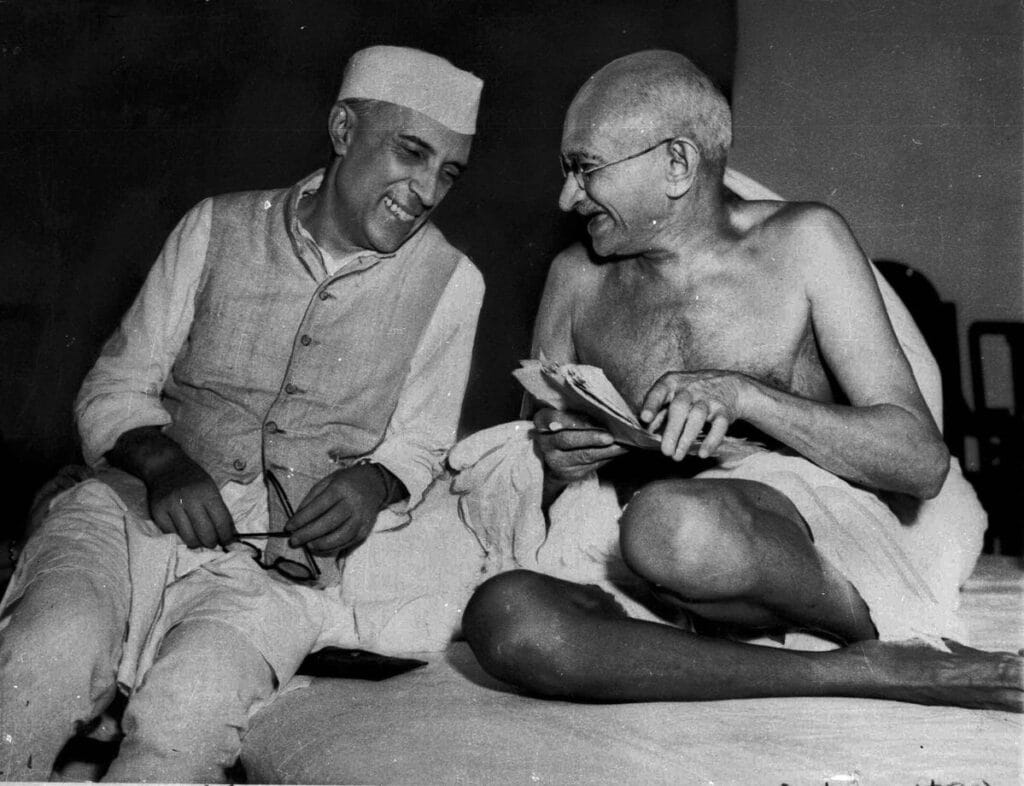
Gandhi and Nehru
After independence, the biggest ideological clash between Gandhi and Nehru was over the economy. While Mahatma Gandhi remained a lifelong advocate of Gram Swaraj—a decentralized, village-based economy—Nehru, inspired by the Soviet model, emphasized heavy industrialization and development through Five-Year Plans.
Despite this ideological difference, Gandhi recognized Nehru as his political successor, fully aware that Nehru did not completely share all his ideals.
Nehru and Sardar Patel
Nehru’s relationship with Sardar Vallabhbhai Patel was a mix of collaboration and administrative differences. Patel was more conservative and often questioned Nehru’s socialist policies.
Despite this, the two worked together to run the government. In historic tasks like the integration of princely states, Nehru gave full support to Patel’s efforts. While they respected each other’s domains, their administrative approaches often differed.
Subhas Chandra Bose
Nehru’s clash with Bose centered on the means and strategy for independence. Nehru believed in non-violence and mass movements, while Bose sought freedom through military force and international alliances (such as seeking help from the Axis Powers).
This conflict reached its peak during the Tripura Crisis (1939). Despite their differences, Nehru personally fought legal battles to defend officers of the Indian National Army (INA) during the Red Fort Trials, demonstrating his commitment to justice, personal integrity, and patriotism.
Dr. B.R. Ambedkar
By including Ambedkar in the Constituent Assembly, Nehru acknowledged his intellect and expertise. Nehru strongly supported Ambedkar on one of the most important legal efforts for social reform, the Hindu Code Bill, which paved the way for women’s rights.
Although differences over social justice and policy implementation led Ambedkar to resign from the cabinet, there remained a deep mutual respect between the two leaders.
Maulana Abul Kalam Azad
Azad was one of Nehru’s closest ideological allies. They shared a deep alignment in their views on secularism, modern education policy, and nation-building. Azad made a significant contribution as the first Education Minister in Nehru’s cabinet.
Muhammad Ali Jinnah
Nehru had the greatest ideological distance from Jinnah, as he opposed the Two-Nation Theory and the partition of India. However, given the deteriorating communal situation, he ultimately had to consent to the partition.
Ideological Distance from Revolutionaries: Non-violence vs. Militancy
Nehru’s most fundamental ideological difference was with armed revolutionaries, centered on the strategy and means of the freedom movement.
Bhagat Singh and Chandrashekhar Azad
Nehru was firmly committed to Gandhi’s non-violent movement, while revolutionaries like Bhagat Singh and Azad believed in armed struggle and violent methods. Nehru personally admired Bhagat Singh’s courage and even pressed to halt his execution, but he did not support their violent approach.
Lala Lajpat Rai and Militant Nationalism
Lala Lajpat Rai represented the extremist faction and a conservative nationalist ideology within Congress, while Nehru championed youthful, socialist, and internationalist ideas. Although Nehru respected Lajpat Rai’s sacrifice, politically they stood on different ends of Congress’s generational spectrum.
Early Revolutionary Groups
Nehru made it clear in his writings that he did not consider individual terrorist acts, like those carried out by Bidhuram Bose and other early Bengal revolutionaries, as an effective path to independence. He believed that such actions could not generate a mass-based movement, which was essential to challenge British rule.
Conclusion Nehru’s ideological distance was not personal but strategic. He believed that a vast country like India could achieve freedom through moral force and mass movements, whereas revolutionaries believed that demonstrating power was necessary to intimidate the government.
Nehru’s Views on Hindu Nationalism
Nehru’s nationalism was based on secularism and inclusive Indian identity, whereas the Hindu Mahasabha and RSS focused on cultural nationalism or Hindutva.
Key Differences in Defining the Nation
| Topic | Jawaharlal Nehru’s Perspective | Hindu Mahasabha/RSS Perspective |
| Base of Nationalism | Secular Nationalism: The basis of the nation is Indian citizenship, not religion. India is a country of people of all religions. | Cultural Nationalism/Hindutva: The nation’s identity should be based on Hindu culture and the Hindu religion (Savarkar’s Hindutva). |
| Secularism | The state should have nothing to do with religion. This is essential for the existence of India. | Secularism was considered detrimental to Hindu interests because it undermines the concept of a Hindu Nation. |
| Vision of the Future | A modern, socialist, scientific, and democratic republic. | A Hindu Nation based on ancient Hindu glory. |
Nehru’s views towards specific leaders
V. D. Savarkar
Savarkar’s concept of ‘Hindutva’ was diametrically opposed to Nehru’s secular nationalism. Nehru considered the ideology of Hindutva to be divisive and medieval. Nehru viewed Savarkar’s ideology as one of the biggest obstacles to the modernization of India and the creation of an inclusive society.
M. S. Golwalkar
The advocacy by the RSS and Golwalkar for making India a unitary Hindu Nation was diametrically opposed to Nehru’s pluralistic and federal idea of India. Golwalkar’s organization and its functioning were far removed from Nehru’s democratic thinking.
Syama Prasad Mookerjee
Mookerjee (who was earlier associated with the Hindu Mahasabha and later founded the Jan Sangh) intensely criticized Nehru’s Kashmir policy, economic policy (planning and socialism), and his attitude towards Pakistan. Nehru considered Mookerjee a political rival, but he accepted the voice of the opposition in a democracy. However, Mookerjee’s Hindutva politics was a direct threat to Nehru’s secular politics.
Assassination of Mahatma Gandhi and the Ban on the RSS
The sharpest disagreement and conflict between Nehru and his government towards these organizations came after the assassination of Mahatma Gandhi.
When Nathuram Godse (the first terrorist of independent India, who was associated with the Hindu Mahasabha and influenced by the ideology of the RSS) assassinated Gandhi, both Nehru and Patel held the RSS responsible for spreading unrest and divisive politics in the country.
The Nehru government temporarily banned the Rashtriya Swayamsevak Sangh (RSS) in 1948. This demonstrates the Nehru government’s strict stance towards these organizations.
Atal Bihari Vajpayee
During the freedom struggle, Atal Bihari Vajpayee was a young RSS Pracharak (propagator). Nehru had no personal animosity towards him or other young leaders of the Jan Sangh; the disagreement was purely with their Hindutva ideology.
Nehru, as a true democratic leader, respected the Jan Sangh Members of Parliament, including Vajpayee, in the Parliament. Once, impressed by Vajpayee’s oratory skills, Nehru remarked, ‘This young man will one day become the Prime Minister of the country.’ This comment shows that Nehru respected the talent of ideological opponents, even if he did not agree with their ideology.
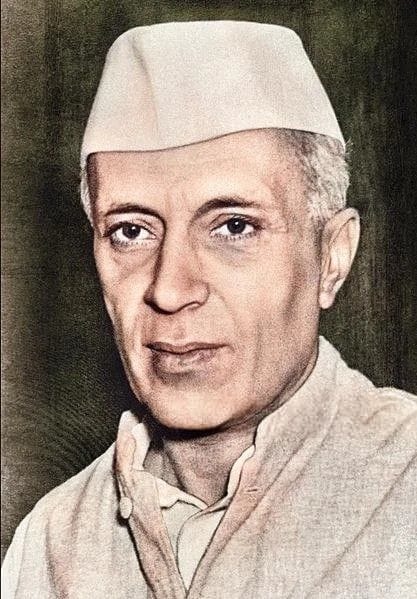
Jawaharlal Nehru as Prime Minister (1947–1964): The Builder of Modern India
As India’s first Prime Minister for 17 years after independence, Jawaharlal Nehru not only led the country but also implemented the vision of a nation on the ground.
Despite the tragedy of partition and centuries of poverty, he laid a strong democratic, scientific, and secular foundation for the building/architecting of Modern India.
Integration of Princely States
At the time of independence, there were more than 560 large and small Princely States in India. Integrating these states into the Indian Union was a monumental and complex challenge, which Nehru successfully accomplished in collaboration with Sardar Patel.
Integration of Challenges: This process was not merely administrative but also political and diplomatic. Most of the princely states were peacefully merged through the ‘Instrument of Accession’.
Special Cases: A few states—such as Junagadh (by referendum), Hyderabad (by police action ‘Operation Polo’), and Jammu and Kashmir (after Maharaja Hari Singh signed the document of accession)—presented special challenges, which the Nehru government resolved with a blend of determination and diplomacy. This integration process established India as a geographically and politically Cohesive Unit.
Institutional Foundation and the Constitution
Nehru shaped India’s democratic spirit through his method of governance.
Framing of the Constitution: Nehru played a significant role in the drafting of the Constitution, at the core of which lay the principles of democracy, secularism, and socio-economic socialism. He ensured that all citizens of India received the right to Adult Franchise (universal adult suffrage), which was not granted in many developed countries of the world at that time.
Planning Commission: To organize the country’s economic development, Nehru established the Planning Commission in 1950. Through the Five-Year Plans, the government attempted to balance limited resources between agricultural and industrial development, laying the foundation for India’s Mixed Economy.
Education, Health, and Science
Nehru’s most far-sighted contribution was moving India into the scientific age. He considered it the only way to fight poverty and backwardness.
Scientific Temper: Nehru consistently emphasized promoting scientific temper and rationalism in public life to challenge superstitions and orthodoxy.
Establishment of Modern Temples: He referred to large dams, steel factories, and institutions of higher education and research as the ‘Temples of Modern India’. Under this foresight, major institutions like the Indian Institutes of Technology (IITs), the All India Institute of Medical Sciences (AIIMS), and the Atomic Energy Commission were established, which today are the backbone of India’s technological progress.
Jawaharlal Nehru’s Important Institutions and Projects, which were called the ‘Temples of Modern India’.
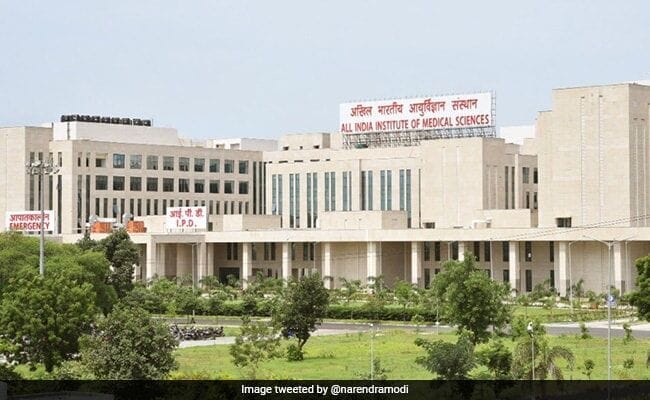
| Type of Institution | Number (During the Nehruvian Era or based on his Foundation) | Significant Examples |
| Indian Institute of Technology (IITs) | 5 | IIT Kharagpur (1951), Bombay (1958), Madras (1959), Kanpur (1959), and Delhi (1961). |
| All India Institute of Medical Sciences (AIIMS) | 1 | Establishment of AIIMS New Delhi (1956). |
| Nuclear Energy and Research | Main 2 | The foundation for the Atomic Energy Commission (AEC – 1948) and the Bhabha Atomic Research Centre (BARC) was laid. |
Foreign Policy and Non-Alignment
Nehru created a unique identity for India on the global stage by formulating an independent and sovereign foreign policy during the Cold War.
Non-Aligned Movement (NAM):
Nehru refused to join the bloc of any superpower. He, along with Tito of Yugoslavia and Nasser of Egypt, laid the foundation for the Non-Aligned Movement. This policy gave India the freedom to make independent decisions according to its national interests.
Panchsheel Principles:
For peaceful co-existence with China, Nehru emphasized the principles of ‘Panchsheel’ (Five Principles of Peaceful Coexistence). These principles included mutual respect and non-interference in each other’s internal affairs, which increased India’s moral influence in international diplomacy.
Challenges and Controversies
Jawaharlal Nehru’s tenure, while filled with successes, was also surrounded by serious challenges and controversies, which raised profound questions about his leadership and policies.
Kashmir Issue and the United Nations
The Kashmir issue was one of the biggest and most enduring challenges faced by Nehru.
The Beginning of the Problem:
In 1947, Pakistan-backed tribesmen attacked Kashmir. Immediately after Maharaja Hari Singh signed the Instrument of Accession to India, the Indian Army retaliated.
Taking the Issue to the UN:
Nehru raised the matter at the United Nations (UN), aiming to stop the aggression. However, while the UN declared a ceasefire, it complicated the process for a permanent resolution and left Kashmir divided between India and Pakistan (as the Line of Control, LoC). Critics believe Nehru’s decision to go to the UN was a strategic blunder, which has left the issue unresolved to this day.
Integration of Goa: Liberation from Portuguese Rule
Nehru’s foreign policy was known for peace and diplomacy, but in the case of Goa, he had to opt for military intervention.
Military Intervention:
Even after India’s independence in 1947, Goa remained under Portuguese rule. After years of diplomatic negotiations failed, Nehru ordered military intervention in 1961.
Operation Vijay:
The Indian Army liberated Goa from Portuguese rule through a short military campaign, ‘Operation Vijay’. While this action established India’s sovereignty, it was also criticized by some Western countries.
1962 Sino-Indian War
The 1962 Sino-Indian War was the greatest blow to Nehru’s career, which shook the very foundations of his foreign policy concepts.
Reasons for Defeat: The main reasons for India’s defeat were the lack of military preparedness, the absence of infrastructure in the difficult border areas, and the miscalculation of Chinese capabilities. Nehru’s policy of ‘Hindi-Chini Bhai-Bhai’ and Panchsheel prevented him from recognizing the potential threat from China, which attacked in a move perceived as betrayal.
Impact: This war caused severe damage to Nehru’s international reputation and left a deep psychological scar on the country. Following the war, India’s foreign policy had to be re-evaluated, and emphasis was placed on the country’s defense budget and preparedness.
Political Controversies During Nehru’s Tenure
Nehru’s tenure as Prime Minister was not free from internal political controversies. In fact, several key events tested his leadership and democratic ideals.
Krishna Menon:
V.K. Krishna Menon, one of Nehru’s closest associates, served as India’s Defence Minister. After India’s defeat in the 1962 war with China, Menon faced severe criticism and public disapproval. Eventually, he had to resign. The opposition held his inefficiency — and Nehru’s excessive faith in him — as one of the major reasons for the military debacle.
The Attempt to Make Hindi the National Language:
Nehru’s government tried to officially make Hindi the national language of India. However, this move faced strong resistance from southern states, especially Tamil Nadu. The language dispute exposed the complexities of India’s federal politics, forcing Nehru to ensure that Hindi would not be imposed on non-Hindi-speaking regions.
Economic Policies:
Nehru’s socialist economic policies — particularly land reforms and state control over industries — drew constant criticism from right-wing groups and sections of the business community.
Despite these challenges and controversies, Nehru’s towering personality remained grounded in human imperfections. Yet, they also highlighted one of his greatest strengths — his democratic tolerance and openness to criticism.
विरासत और महाप्रयाण
Jawaharlal Nehru’s passing marked the end of an era for India. His legacy wasn’t confined to political decisions alone — it was a profound blend of philosophy, idealism, and humanism that continued to inspire generations.
Jawaharlal Nehru’s passing marked the end of an era for India. His legacy wasn’t confined to political decisions alone — it was a profound blend of philosophy, idealism, and humanism that continued to inspire generations.
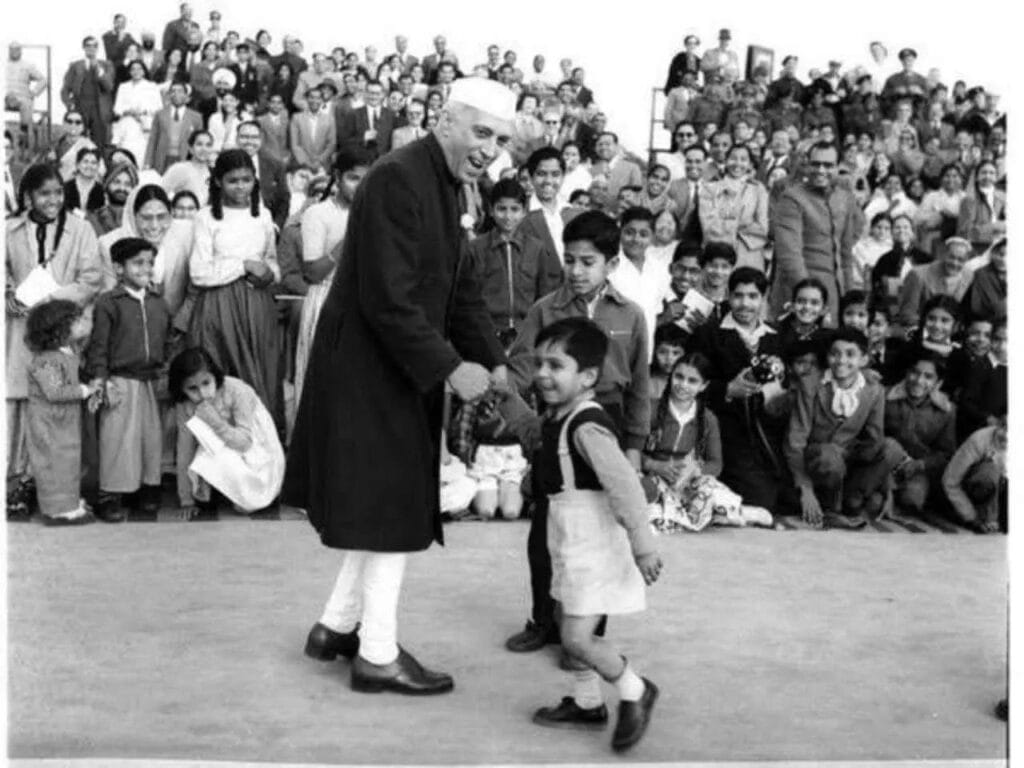
‘Chacha Nehru’ –The Beloved Uncle of Children
Nehru is remembered not merely as a stern statesman, but as a deeply loved and respected figure among millions of Indians.
Love for Children:
Nehru had a special fondness for children. His warmth and affection earned him the affectionate title ‘Chacha Nehru’ (Uncle Nehru) among the public. He loved spending time with children, often engaging with them informally, and was rarely seen without the red rose pinned to his jacket — a symbol of his gentle and caring nature.
Children’s Day:
His birthday, November 14, is celebrated across India as Children’s Day (Bal Diwas). The day stands as a tribute to his lifelong dedication toward children’s rights, welfare, and education — values he believed were the foundation of a strong and progressive nation.
Literary and Philosophical heritage
Nehru was not only a statesman but also an exceptional writer and a profound thinker.
His writings reflect his intellectual depth and his visionary love for India. Through his words, Nehru explored the essence of civilization, freedom, and human progress — blending emotional warmth with rational clarity. His literary works continue to inspire readers, offering a window into the mind of a leader who dreamed of a modern, enlightened India.
Major Works:
Nehru’s three most significant books — An Autobiography, Glimpses of World History, and The Discovery of India — form the intellectual and political foundation of modern India. These works not only chronicle the journey of the freedom movement but also highlight Nehru’s deep faith in scientific temper, secularism, and humanism.
Through these writings, Nehru didn’t just narrate history — he envisioned a nation driven by reason, equality, and universal progress.
Relevance:
His philosophical legacy remains deeply relevant even today.
Nehru was the architect of institutional democracy, a mixed economy, and the policy of non-alignment, all of which continue to form the foundation of India’s political and economic framework. Despite today’s global and domestic challenges, his vision still guides India’s policies, reminding the nation of the balance between idealism and pragmatic governance.
The Final Chapter: Examining Jawaharlal Nehru’s Last Days
The defeat suffered in the 1962 China War and the subsequent political tensions profoundly affected Nehru’s health.
Decline in Health:
Due to the trauma of the war and the constant workload, his health continuously deteriorated. However, he remained engaged in the service of the country until the end, and he did not compromise on his principles.
Demise:
On May 27, 1964, he passed away due to cardiac arrest. The news of his demise stunned the entire nation.
Impact on the Nation:
His passing created a great void in India. The peaceful and orderly transfer of power after his departure (to Lal Bahadur Shastri) was the greatest testament to the success of the strong democratic institutions established by Nehru, which he had considered his most important legacy.
Conclusion
It is not easy to evaluate Jawaharlal Nehru. His life was a vast canvas, on which the hopes, enthusiasm, and some unavoidable errors of nation-building were painted.
Evaluating Nehru: A Balanced Summary
Nehru’s legacy should be viewed in the balanced context of his positive contributions and the criticisms that came his way:
| Contributions | Criticisms |
| Democracy and Institutional Foundation: He established the roots of parliamentary democracy despite illiteracy and poverty, and founded independent institutions like the Judiciary and the Election Commission. | The 1962 China War: The biggest proof of his foreign policy’s failure. This defeat placed serious question marks on his diplomatic foresight. |
| Scientific Temper and Modernization: By establishing institutions like the IITs, AIIMS, and Nuclear Energy centers, he pushed India into the technological and scientific age. | Economic Centralization: The Planning Commission and excessive government control over industries (socialism) later gave rise to bureaucracy and a slow pace of development. |
| Secularism and Foreign Policy: He kept a multi-religious nation united and gave India an independent voice on the international stage through Non-Alignment. | The Kashmir Issue: According to critics, the strategic decision to take the matter to the UN made the problem complex and permanent. |
Relevance in Today’s India
Nehru’s ideas still hold deep meaning in the Indian political landscape today.
Secularism and Inclusion:
In a time when politics based on religious identity is dominant, Nehru’s firm advocacy of secularism and his effort to include all communities remains an important ideal for India’s diverse democracy.
Scientific Temper:
His emphasis on science and rationalism is still relevant in the fight against conservatism and superstition, which is essential for the nation’s progress.
Nehru had envisioned a nation that was not only self-reliant but also morally powerful.
Final Thoughts
Jawaharlal Nehru was an architect who laid the foundation of modern India upon a broken colonial structure. His decisions—whether they were successful or controversial—alone molded the character of the republic.
Ultimately, Nehru’s legacy compels us to reflect on whether we have been able to uphold the ideals of the freedom struggle, for which he spent his entire life in jail and dedicated himself to the nation.
Nehru was the dream that India saw immediately after its independence—a dream that was incomplete, yet full of modernity and hope.
References and Sources
The information and anecdotes related to Pandit Jawaharlal Nehru’s life, ideas, and political contributions in this article are mainly derived from the following sources:
Primary Sources
These are the works written by Nehru himself, which form the basic foundation of his thoughts, education, and personal experiences:
- Jawaharlal Nehru. An Autobiography: With Subsidiary Essays. (Main source for his Western education, meetings with Gandhi, jail journeys, and inclination towards socialism.)
- Jawaharlal Nehru. The Discovery of India. (Source for his thoughts on India’s culture, philosophy, and scientific temper.)
- Jawaharlal Nehru. Glimpses of World History. (Source for his ideological and philosophical depth.)
Secondary Sources
These are the official biographies and historical studies that analyze his political decisions, work as Prime Minister, and his relationships with various leaders:
- S. Gopal, Jawaharlal Nehru: A Biography. (An important official biography in the context of his PM tenure, foreign policy, the China War, and internal political disputes.)
- Ramachandra Guha, India After Gandhi. (Reference for the merger of princely states after Independence, the institutional foundation, and the evaluation of Nehru’s political legacy.)
Expert Historical Records: Information regarding ideological differences with the Hindu Mahasabha/RSS and the revolutionaries is based on various historical archives, Parliamentary Debates, and certified research works written on India’s freedom movement.
Important Note for the Reader
This article includes the main aspects of Pandit Jawaharlal Nehru’s life and legacy (education, freedom struggle, Prime Ministerial period, constitution, institutional foundation) as well as his deep ideological dimensions (differences with Gandhi/Patel/Bose, views on Hindu Nationalism).
This material will serve as an important ‘key-note’ especially for all serious students and candidates who are studying History, Political Science, and Contemporary Indian Society.
These notes are extremely useful for the preparation of the following major competitive examinations:
- Civil Services Examination (UPSC/State PCS)
- Staff Selection Commission (SSC) and other Graduate Level Exams
- University Entrance Exams (CUET and other SGL)
The objective of this article is to present a balanced and comprehensive perspective of Nehru’s positive contributions (democracy, scientific temper) and criticisms (China War, centralization).

